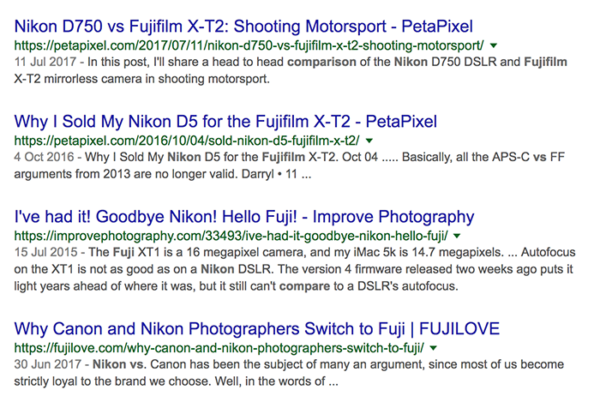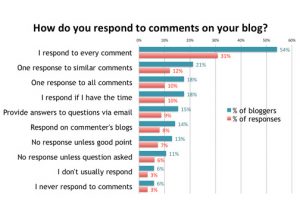— November 2, 2017

You will have heard so many times over the last ten years how important SEO is for your business. But what if your business is doing really well just as it is – why invest in a marketing strategy you’ve never really felt the need for?
It’s a valid question. And the truth is some successful businesses don’t actually need to worry about SEO, whereas for others it is the key to their success. In this article we take a look at three very different, successful businesses – Nike, Fuji and The York Roast Co – and discuss how important SEO is for them.
What counts as successful?
The first thing we need to consider is what we actually mean by a “successful” business. An oil firm like Total has got to rank high among the list of successful businesses and it’s fair to say it doesn’t rely on SEO leads to thrive. The people Total wants to be doing business with aren’t going to be found on Google – it’s as simple as that.
Success isn’t measured by the size of your business, though. What if you’re a local sandwich shop that can barely keep up with its current clientele? That sounds like a successful business in its own right but does it need SEO to maintain or grow its business?
Working our way back up to the bigger businesses, we have brands like Nike who were popular long before SEO and continue to thrive in the digital age. Does Nike worry about the number of links pointing to its homepage? Well, it doesn’t need to because it’s got the privilege of being one of the most reputable brands in its industry. Traffic is guaranteed but the sports giant still needs to think about technical SEO – site health, loading times, etc.
The point is, success means something different to every business and the role SEO plays in this will vary. This concept will be a lot less vague by the time you’re finished with this article.
How important is search to your business (and your rival’s)?
When it comes down to it, this is the key question. The tricky part for successful businesses can be knowing how important search really is to them. One of the most interesting marketing battles right now is in the digital camera market. With smartphones in every pocket, the likes of Nikon and Canon are fighting for survival.
SEO is playing a huge role in their strategies, too. They’re not battling it out for backlinks but the fight for content on third-party sites, positive reviews and citations from popular sources is immense.
The most impressive player in recent years has been Fujifilm. The Japanese firm has turned itself from an iconic film manufacturer into the hottest consumer digital camera brand in the market right now with its Fuji X series. The amazing part is the company pulled it all off with a mostly online marketing campaign, revolving around off-site SEO.

Fuji’s off-site SEO strategy has been instrumental in taking on the DSLR giants
Now, people in the market for a new camera know all about Fuji. They’ll also know about the number of Nikon users who have sold their old equipment and jumped over to Fuji, which is winning the SEO battle in a highly competitive, but also endangered market.
Always remember – if search is important to your rivals, it’s important to you. Your competitors can’t dominate the results page if you beat them to it. Fuji successfully created a new range of search queries for itself (e.g. “Nikon vs Fuji”) and dominates the lot of them.
How much help does your audience need before buying?
Brands like Fuji know customers don’t buy their products for the first time without a lot of consideration. Whether it’s consumer electronics, a new car, that next holiday or any significant purchase, people want to feel confident before they commit.
This is where the lengthy buying process comes from for purchases of this nature – and this is where the likes of Fuji make their mark. When you have strong rivals to compete with and consumers who need a lot of buying advice, search is where you’ll capture your most important leads.
These are the consumer journeys where every customer you secure is another one your closest rivals don’t.
SEO for smaller, successful businesses
Going back to our sandwich shop example, the small café-style eatery that probably comes to mind won’t really need a website. However, local search and Google Maps are still important, which brings local SEO into things.
Not every sandwich shop is the typical single-building business that comes to mind though. Earlier this year, The York Roast Co. went viral after its Yorky Pud Wrap caught people’s attention. This is a business with five locations across the UK and a website allowing online orders via Deliveroo.

Source: The York Roast Co.
With the Yorky Pud Wrap going viral and The York Roast Co. brand attached to it, the business is enjoying a spike in online searches, local traffic and queues of customers lining up outside the door. When people want to know where to get their Sunday roast wrapped in a Yorkshire pudding fix, they turn to search.
If you’ve got a website, you’re already doing SEO
The fact is, if you’ve got a website then you’re already doing SEO whether you realise it or not. The question is how well you’re doing it. For brands like Nike who have their products worn by the world’s best athletes and sell most of them through third-party sites, their SEO needs are very different from your typical B2B software company.
If your business relies on its website for the bulk of its online leads, then your SEO strategy will need to be far more aggressive. Not only that, but it will need to be strategically integrated with your content marketing, paid advertising and social media efforts.
If search is important to you (or your rivals), SEO should be the basis of all your online marketing efforts.
Digital & Social Articles on Business 2 Community
(69)
Report Post








